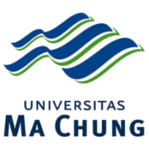THE IMPLEMENTATION OF EGRA (EXPOSURE, GENERALIZATION, REINFORCEMENT AND APPLICATION) TECHNIQUE TO REDUCE STUDENTS’ GRAMMATICAL ERRORS
Abstract
This study aimed to address the challenge of English grammar learning for eighth-grade students at SPNF SKB SIKKA, employing the EGRA technique in a classroom action research (CAR) format. Data, gathered through observation sheets, interviews, and tests, were analyzed quantitatively and qualitatively. In the initial cycle, students demonstrated low engagement and reported difficulties with unclear explanations. Quantitative analysis revealed significant grammatical errors, notably in Mis-formation (26.11%). Following the EGRA technique in the second cycle, improvements were observed, with the highest error in Mis-formation (31.43%) and an increased average score of 70.33. Qualitative findings indicated enhanced classroom conditions and student understanding. The study concludes that the EGRA technique effectively reduces grammatical errors, suggesting its viability as an innovative tool for teaching the simple present tense
References
Chauke, T. (2022). Grammatical errors made by learners in writing descriptive essays: a case study of Mmakgabo Senior School, Koloti Circuit, Limpopo, South Africa (doctoral dissertation).
Choubane, S. An Investigation of the Influence of L1 on EFL students’ paragraph writing: Case of first year English language students at Setif 2 University.
Farisatma, N., & Rahman, F. (2017). Applying zijir, 3(5), 1971-75
Ginting, D. (2018). Building 21-Century Indonesian teachers’ teaching capacities through the integration of technology into classrooms. KLAUSA (Kajian Linguistik, Pembelajaran Bahasa, dan Sastra), 2(02), 1-10.
Ginting, D., Fahmi, Utimadini, N.J., Barella, Y.. & Khatimah, H. (2022). The Interplay of motivation and quality of instructions in the self-paced program: a MOOC for administration staffs, World Journal of English Language, 12(1), 198-210.
Islam, S. P. (2010). Improving the students ‘grammar ability through EGRA (exposure, generalization, reinforcement, application) method of the second year students of SMP Moncoloe Makassar (doctoral dissertation, State Islamic University).
Mansyah, I., & Rarsani, F. (2021). Students’ grammatical errors in translating Indonesian sentences into English. JISIP (Jurnal Ilmu Sosial dan Pendidikan). 5(1).
Nurbianta, N., Rahmat, R., & Sholina, A. (2019). Exploring gGrammar through small group interaction technique on pre-intermediate structure course. English Language in Focus (ELIF); 1(2), 113-120.
Rajathurai Nisanthi. 2018. The importance of learning English in today world: International Journal of Trend in Scientific Research and Development (IJTRSD) International Open Acess Journal, 3 (2456-6470): 871
Sadiah, S. & Ade, R. (2019). An analysis of grammatical errors in studetents’ writing descriptive text: International Standard Serial Number (ISSN), 2 (6): 764-765
Selong, N. T. Y., & Faridha, N. Analysis of Using Simple Past Tense on Recount Text Class VIII B Students of SMP Pelita Ngabang in Academic Year 2019/2020 Landak District.
Simbolon, M. (2015). An analysis of grammatical errors on speaking activities. Journal on English as a Foreign Language, 5(2), 71-86.

This work is licensed under a Creative Commons Attribution-ShareAlike 4.0 International License.
Open Access Policy
This is an open access journal which means that all content is freely available without charge to the users or their institution. Users are allowed to read, download, copy, distribute, print, search, or link to the full texts of the articles, or use them for any other lawful purpose, without asking prior permission from the publisher or the author. This is in accordance with the BOAI definition of open access.
![]() This work is licensed under a Creative Commons Attribution-ShareAlike 4.0 International License.
This work is licensed under a Creative Commons Attribution-ShareAlike 4.0 International License.

















